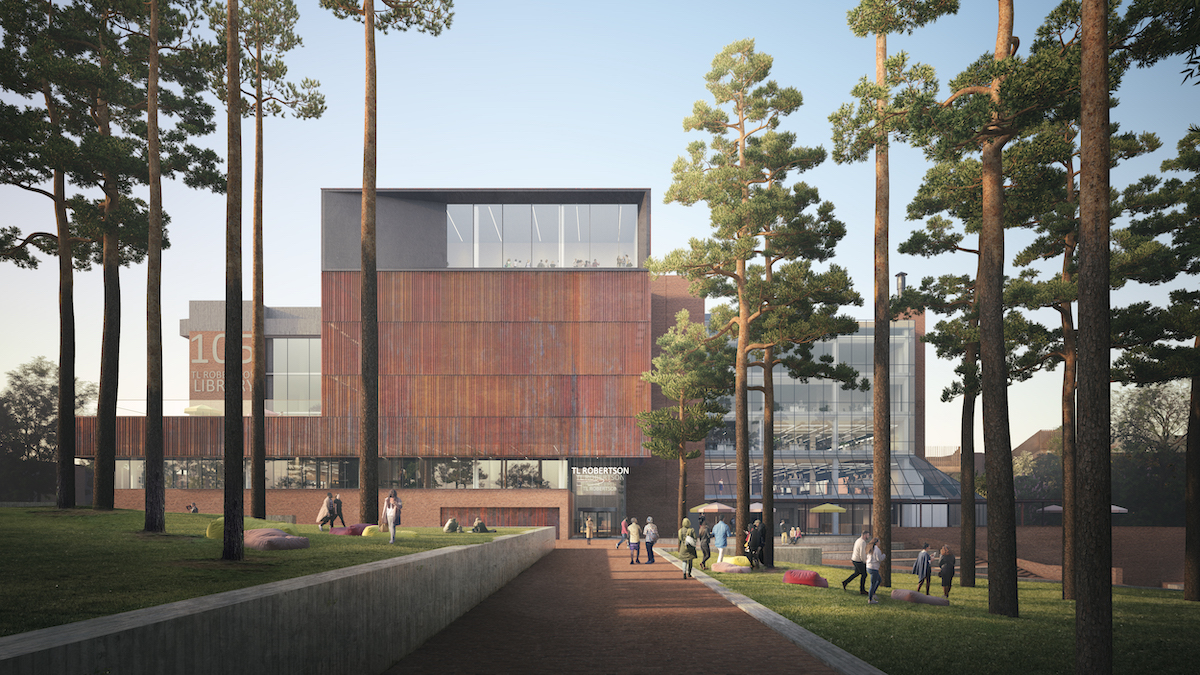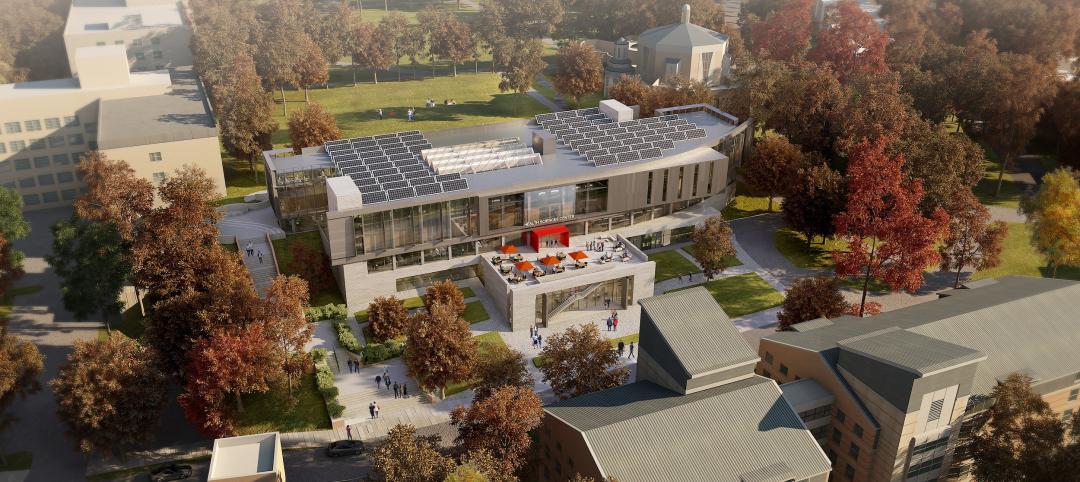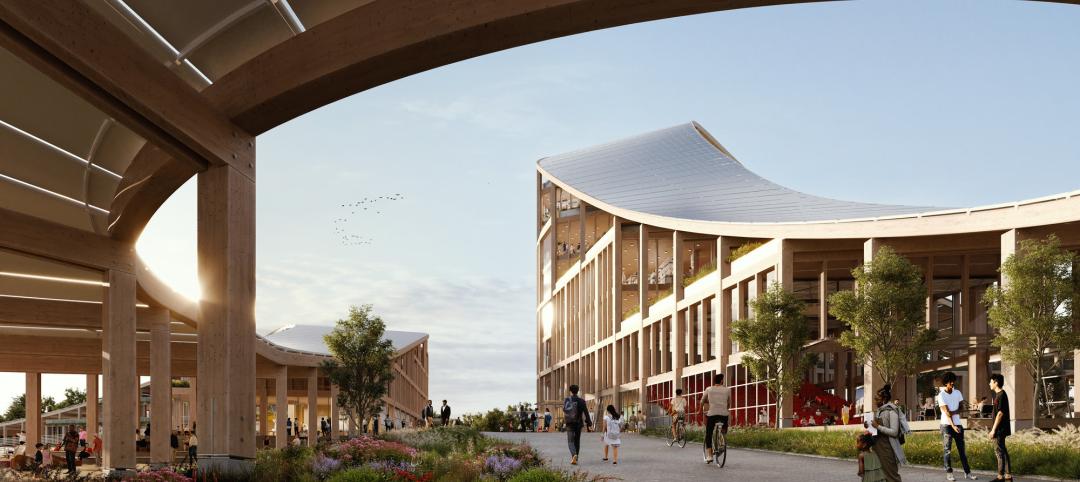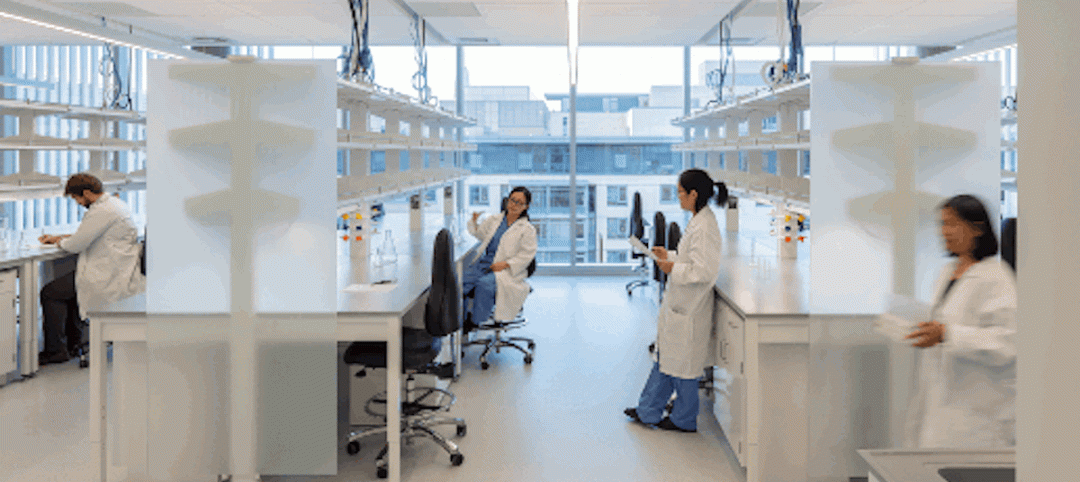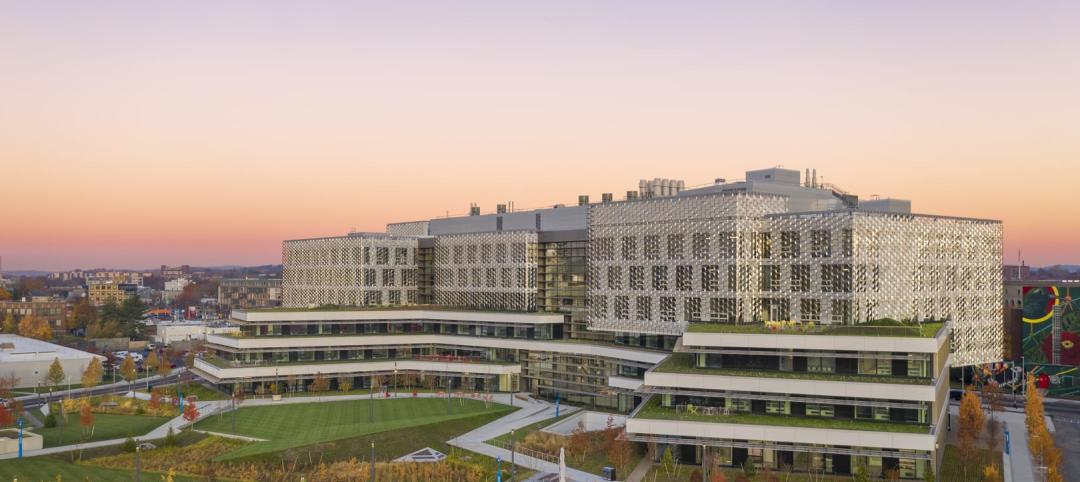Modern architecture is known for its sleek, streamlined design, but it’s also often been aptly characterized as being cold and sterile. In Perth, Australia’s Curtin University, one such building is getting a major makeover.
The TL Robertson Library, which has two million users per year, is being revamped by Danish architectural firm Schmidt Hammer Lassen Architects, with the help of Australian architecture firm Hames Sharley. The changes are meant to help the building be more user-friendly and also fit better into the green campus.
Constructed in 1972, the library was originally designed with little natural daylight to protect the books and other materials in its collection. Now, Schmidt Hammer Lassen is designing a “living library” by opening up new pathways for visual and physical connectivity in the building, while bringing in more natural light. The new open design is expected to better meet needs of users.
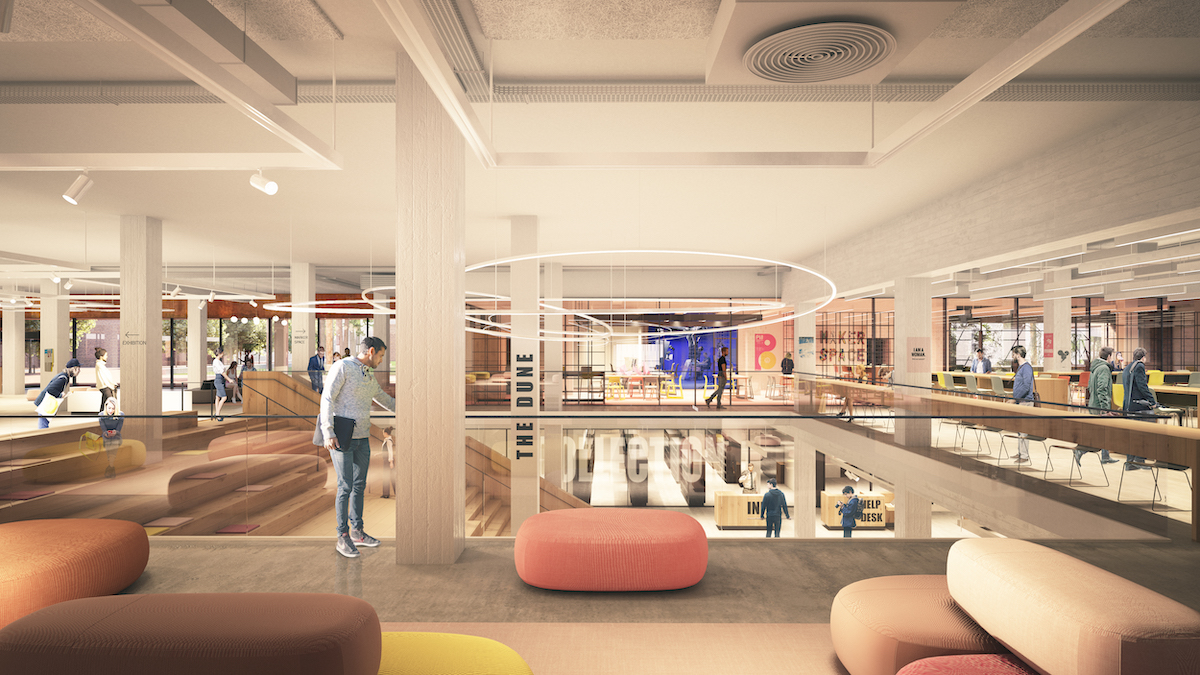
Green spaces and tree-lined walkways characterize Curtin University’s campus. With the TL Robertson Library centrally located on the campus, which makes it a natural focal point, the school’s leaders wanted to take better advantage of that location and the possibilities inherent in the building.
The new architectural design will invite the landscape in, using timber and other natural materials to enhance the warmth of the building. Elongated windows are meant to provide better views of trees in the adjacent park.
With its redesign, the library will fit the goals of the university and its staff and students.
“We were driven by three core principles when designing TL Robertson Library: openness, access and well-being,” said Morten Schmidt, Founding Partner of Schmidt Hammer Lassen. “The redevelopment complements the building’s original features with bold, contemporary architectural interventions that focus on warm, natural materiality, and contrast the current structure with open lightness.”
The warmth that will be engendered by the library’s redesign also is expected to encourage the space to be more often used as a community gathering spot, too.
“This project will support the TL Robertson Library’s role as a key meeting place and activity centre on Curtin’s Perth Campus and its transformation into a place for digital innovation and social collaboration for students, staff, and the wider community,” said Professor Deborah Terry, Vice-Chancellor at Curtin University.

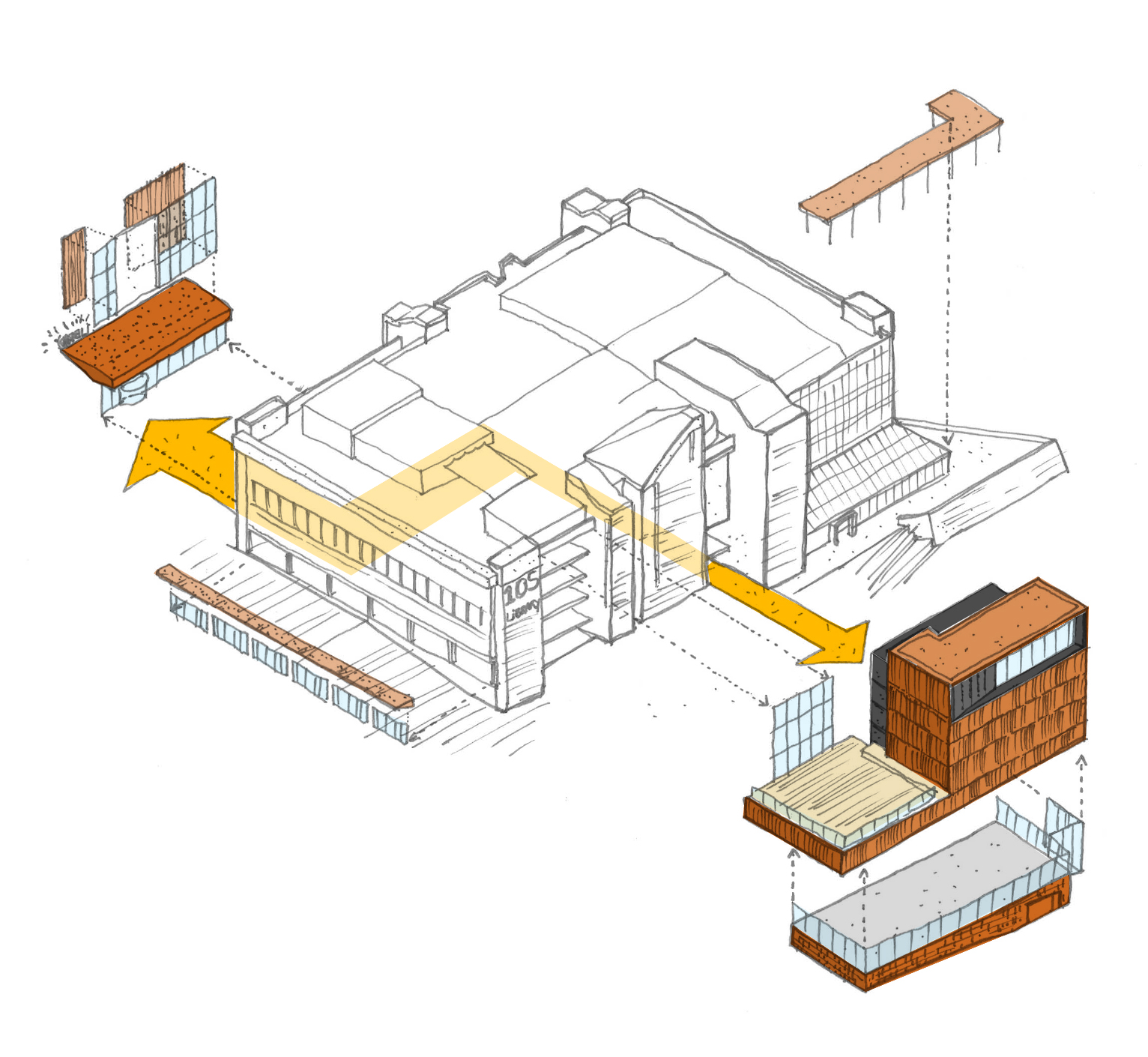

Related Stories
University Buildings | May 5, 2023
New health sciences center at St. John’s University will feature geothermal heating, cooling
The recently topped off St. Vincent Health Sciences Center at St. John’s University in New York City will feature impressive green features including geothermal heating and cooling along with an array of rooftop solar panels. The geothermal field consists of 66 wells drilled 499 feet below ground which will help to heat and cool the 70,000 sf structure.
Mass Timber | May 1, 2023
SOM designs mass timber climate solutions center on Governors Island, anchored by Stony Brook University
Governors Island in New York Harbor will be home to a new climate-solutions center called The New York Climate Exchange. Designed by Skidmore, Owings & Merrill (SOM), The Exchange will develop and deploy solutions to the global climate crisis while also acting as a regional hub for the green economy. New York’s Stony Brook University will serve as the center’s anchor institution.
University Buildings | Apr 24, 2023
Solving complicated research questions in interdisciplinary facilities
University and life science project owners should consider the value of more collaborative building methods, close collaboration with end users, and the benefits of partners who can leverage sector-specific knowledge to their advantage.
Green | Apr 21, 2023
Top 10 green building projects for 2023
The Harvard University Science and Engineering Complex in Boston and the Westwood Hills Nature Center in St. Louis are among the AIA COTE Top Ten Awards honorees for 2023.
Higher Education | Apr 13, 2023
Higher education construction costs for 2023
Fresh data from Gordian breaks down the average cost per square foot for a two-story college classroom building across 10 U.S. cities.
Market Data | Apr 11, 2023
Construction crane count reaches all-time high in Q1 2023
Toronto, Seattle, Los Angeles, and Denver top the list of U.S/Canadian cities with the greatest number of fixed cranes on construction sites, according to Rider Levett Bucknall's RLB Crane Index for North America for Q1 2023.
University Buildings | Apr 11, 2023
Supersizing higher education: Tracking the rise of mega buildings on university campuses
Mega buildings on higher education campuses aren’t unusual. But what has been different lately is the sheer number of supersized projects that have been in the works over the last 12–15 months.
Contractors | Apr 10, 2023
What makes prefabrication work? Factors every construction project should consider
There are many factors requiring careful consideration when determining whether a project is a good fit for prefabrication. JE Dunn’s Brian Burkett breaks down the most important considerations.
Smart Buildings | Apr 7, 2023
Carnegie Mellon University's research on advanced building sensors provokes heated controversy
A research project to test next-generation building sensors at Carnegie Mellon University provoked intense debate over the privacy implications of widespread deployment of the devices in a new 90,000-sf building. The light-switch-size devices, capable of measuring 12 types of data including motion and sound, were mounted in more than 300 locations throughout the building.
Architects | Apr 6, 2023
New tool from Perkins&Will will make public health data more accessible to designers and architects
Called PRECEDE, the dashboard is an open-source tool developed by Perkins&Will that draws on federal data to identify and assess community health priorities within the U.S. by location. The firm was recently awarded a $30,000 ASID Foundation Grant to enhance the tool.


